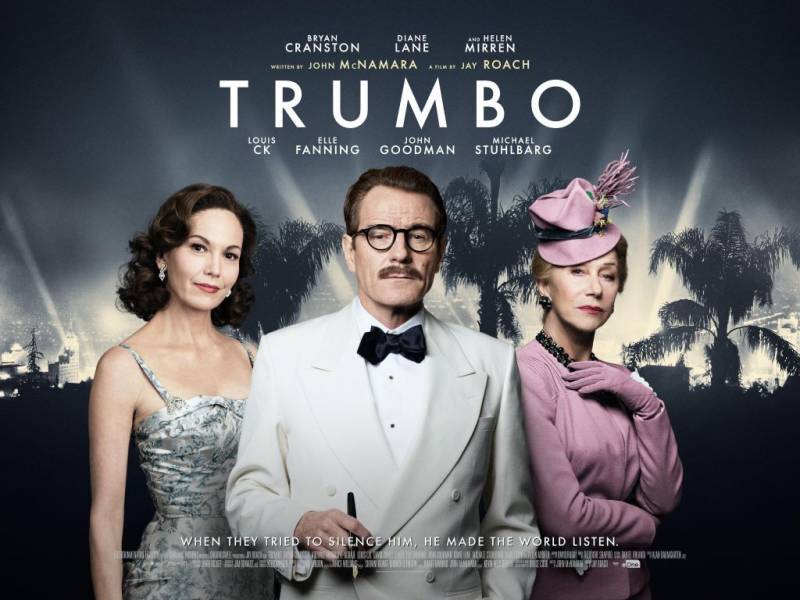Humanity finds it easy to support witch-hunts. Demagogues, all over the world, find it easy to disregard legal, ethical and moral tenets to demonize groups of innocent people in their bids to control power. Inexplicably, large numbers of people become willing, if not entirely complicit, participants in vicious witch-hunts. Prejudice, paranoia and bigotry feed witch-hunts. They bring like-minded people together; they feed feelings of self-righteousness; they give the ignorant a sense of purpose; and they appeal to the most base of human instincts. They are also corrosive, cruel and wrong.
In 1947, the House Committee on Un-American Activities started investigating a number of people in the film industry that they claimed were Communist agents planting propaganda in American films. Thus began the Hollywood Blacklist which was used to deny civil rights, human dignity and gainful employment to a large number of industry professionals. The ensuing persecution, carried out with the solemnity of the people of Salem, had tragic consequences - disintegration of families, bankruptcies, deaths, suicides, and much else.
In today’s politically charged climate, where mass hysteria, suspicion and paranoia are potent tools for the religious and the political right, the greatest strength of Trumbo would be the opportune timing of its release. Except that it isn’t. The communist witch-hunt was exposed to be the farce that it was more than sixty years ago but congressional persecution did not stop at the time; only 2 the targets changed. Black civil rights, planned parenthood, the rights of homosexuals, climate science, and, most recently, Islam are but a few items on the long list of congress’ victims. There has rarely been a time in history when the powerful have not stoked paranoia and fear to achieve their goals. Trumbo would have been as relevant at any other time in history as it is now.
Jay Roach’s Trumbo tells the tale of one of many Congressional witch-hunts. The main character of the film is Hollywood screenwriter Dalton Trumbo who was one of the first people to make the list. The film opens in 1947, when he is at the prime of his career, making an enormous four thousand dollars a week, and living comfortably with his devoted wife and three children in a sprawling California farmstead. Things change when his membership in the Communist Party attracts attention and he is summoned by the House Un-American Activities Committee to testify about his association with the party and provide names of sympathizers of communism. Trumbo refuses to provide any information. He is cited for contempt of Congress, convicted and jailed for a period of eleven months. Once out of jail, Trumbo is unable to find work and is forced to write under pseudonyms to support himself and his family. He churns out as many as thirty mostly mediocre screenplays over the next few years, sometimes for as little as twelve hundred dollars apiece. Nevertheless, he manages to write Roman Holiday and The Brave One, during the period. Both films go on to win Oscars for their pseudonymous writers. Things start improving when Otto Preminger (Christian Berkel) asks him to adapt Exodus and Kirk Douglas (Dean O'Gorman) enlists him to write Spartacus.
Hollywood is no longer able to feign ignorance about the identity of the writer of the Oscar winners. Trumbo emerges victorious when he is publicly named as the writer of Exodus and Spartacus and President-elect John F. Kennedy (Rick Kelly) crosses American Legion picket lines to watch Spartacus. Bryan Cranston’s performance as Dalton Trumbo is a marvel. He embodies the role of the intelligent, witty, and brave screenwriter with great ease and aplomb. His is not the only great performance in the film; most, if not all, actors perform very well. Diane Lane plays the role of a loyal wife with tremendous 3 grace and dignity. John Goodman and Stephen Root, as producers Frank and Hymie King, are funny yet believable. Dean O'Gorman captures the persona and look of Kirk Douglas perfectly while staying far away from mimicry and impersonation. Helen Mirren, as the flamboyant Los Angeles Times columnist Hedda Hopper, outshines all actors in Trumbo including Cranston. Mirren brings alive the role of the vicious gossip gorgon with tremendous verve and energy, stealing every scene that she is a part of. Hers is a performance for the ages.
Trumbo has a number of weaknesses –a dull script, historical reductivisim, a lack of examination of Trumbo’s tumultuous relationship with communism, and a distracting use of vintage film footage, to name a few – but the most serious is its inability to tell Trumbo’s story in the larger context of the politics of fear, right-wing self-righteousness, warped national psyche and the evils of congressional overreach. The film is content focusing on the personal and professional troubles of Trumbo while on the blacklist and his family’s suffering during the period. This makes for compelling drama but does the brave writer a disservice by not telling his valiant story in proper context. It also prevents Trumbo from being the great film it could have been.






